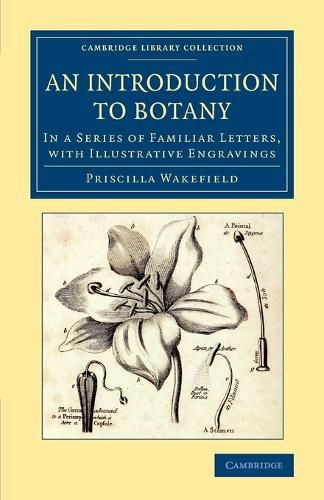Readings Newsletter
Become a Readings Member to make your shopping experience even easier.
Sign in or sign up for free!
You’re not far away from qualifying for FREE standard shipping within Australia
You’ve qualified for FREE standard shipping within Australia
The cart is loading…






Coming from a prosperous London Quaker family, the author Priscilla Wakefield (1751-1832) wrote educational books for children, and one work for adults, Reflections on the Present Condition of the Female Sex (1798), also reissued in this series. This 1796 book on botany, a science which ‘contributes to health of body and cheerfulness of disposition’ but is difficult to study because of its Latin nomenclature and the cost of textbooks, offers a simple introduction for children through the medium of letters between sisters, as ‘Felicia’ shares with ‘Constance’ her growing understanding of plant science. Felicia’s governess is a follower of Linnaeus, whose classificatory system is described as ‘the one universally adopted’, and by the twenty-eighth and final letter, Felicia is describing the class Cryptogamia. This illustrated account in simple language gives an insight into the level of education thought appropriate for young girls at the end of the eighteenth century.
$9.00 standard shipping within Australia
FREE standard shipping within Australia for orders over $100.00
Express & International shipping calculated at checkout
Coming from a prosperous London Quaker family, the author Priscilla Wakefield (1751-1832) wrote educational books for children, and one work for adults, Reflections on the Present Condition of the Female Sex (1798), also reissued in this series. This 1796 book on botany, a science which ‘contributes to health of body and cheerfulness of disposition’ but is difficult to study because of its Latin nomenclature and the cost of textbooks, offers a simple introduction for children through the medium of letters between sisters, as ‘Felicia’ shares with ‘Constance’ her growing understanding of plant science. Felicia’s governess is a follower of Linnaeus, whose classificatory system is described as ‘the one universally adopted’, and by the twenty-eighth and final letter, Felicia is describing the class Cryptogamia. This illustrated account in simple language gives an insight into the level of education thought appropriate for young girls at the end of the eighteenth century.